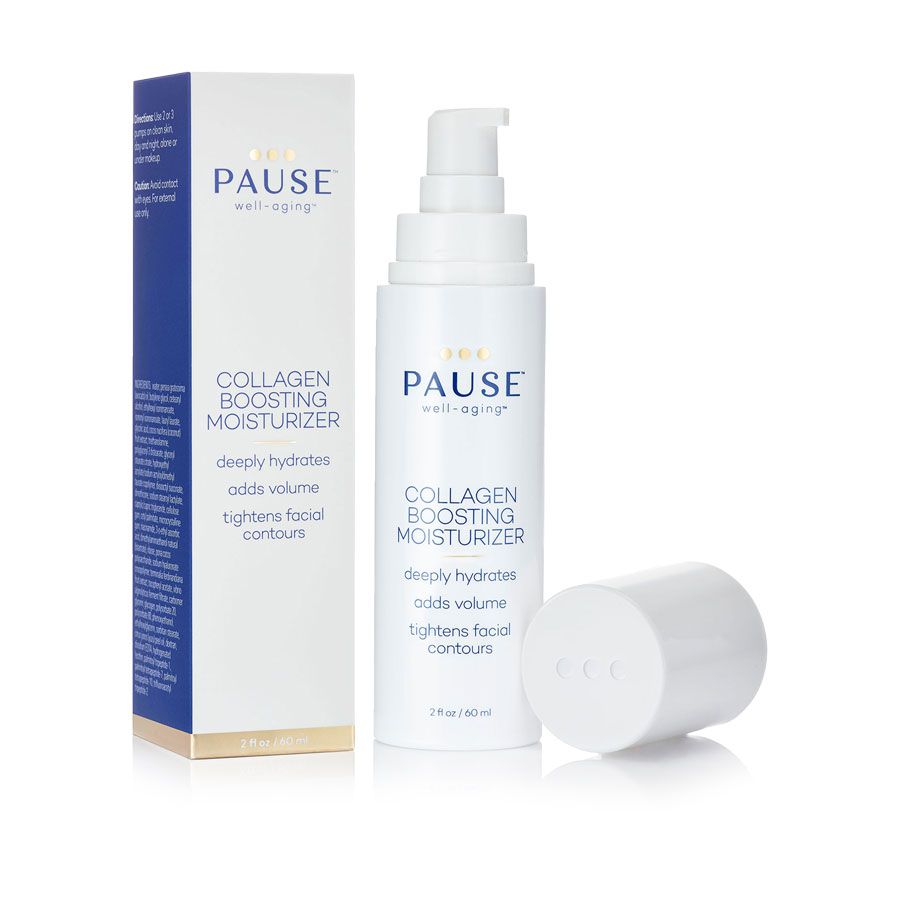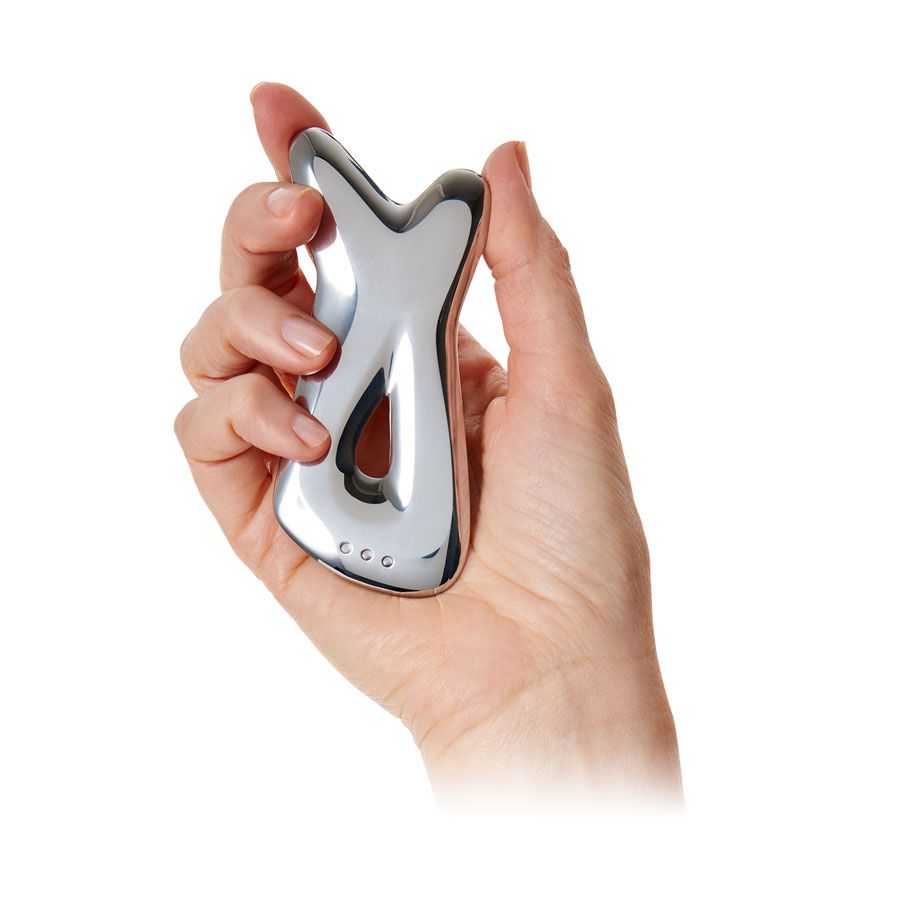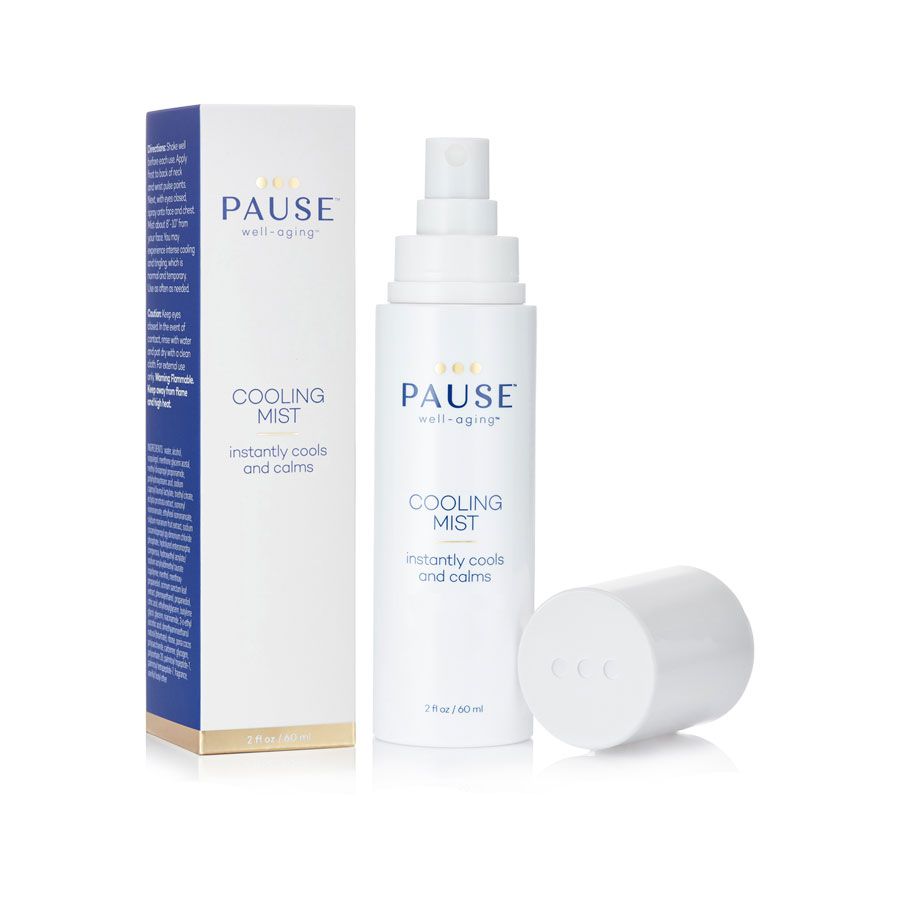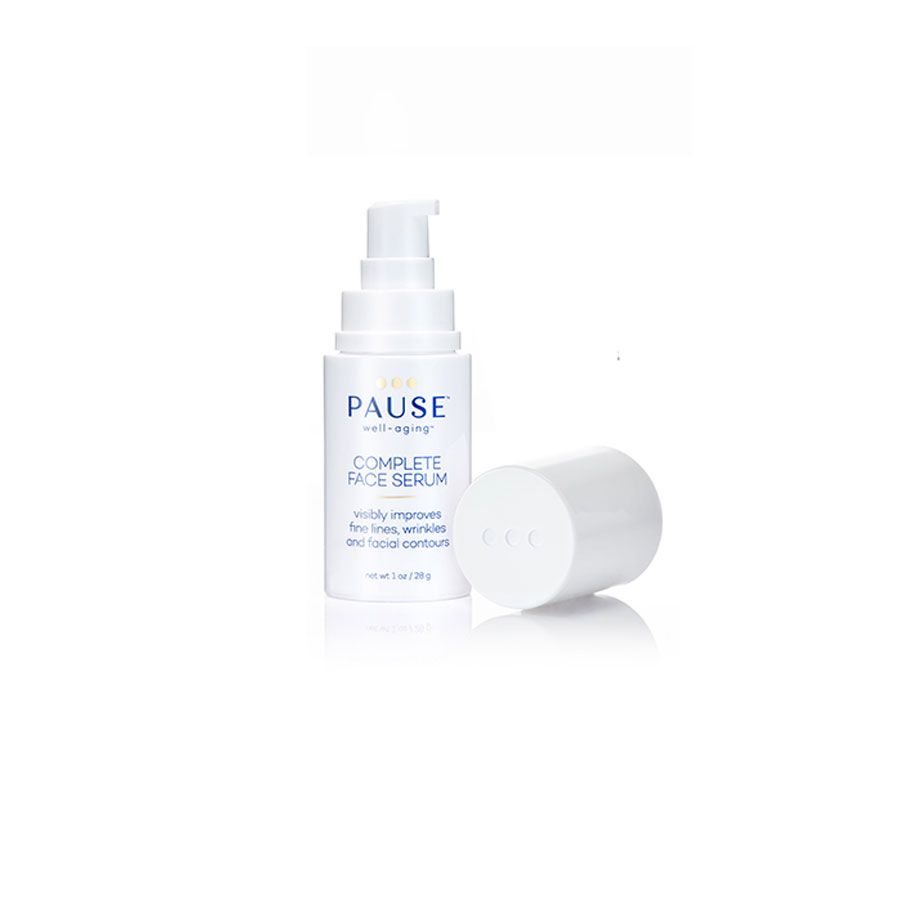Menopause is a topic that's often only talked about in whispers or euphemisms like "the change," but Rochelle Weitzner is trying to change that with Pause Well-Aging, the first menopause-centric skincare brand.
"I want to let women know this time in our life is our passage to power," the Weitzner tells InStyle. "This is when we are likely the most free we've ever been: free from the responsibility of kids at home, with the time to focus on ourselves. We honestly don't give a crap what other people think of us and we're the most knowledgable that we've ever been. We have an incredible amount of power and we need to embrace it."
After leading luxury beauty brands as CEO of Erno Laslo and CFO of Laura Mercier and RéVive Skincare, Weitzner came up with the idea for Pause in a flash — literally. She made the realization there weren't any brands speaking to women at this stage in their lives while experiencing her first hot flash.
While Pause launched in June 2019, it took Weitzner over two years to get the brand off the ground because it was a struggle getting investors to believe (and understand) her vision, and because her website mentioned the word "menopause."
Ahead, Weitzner breaks down some of the biggest misconceptions about menopause and her battle to get the word uncensored by QVC and Google, plus when to start incorporating these products in your skincare routine.
What inspired you to start Pause Well-Aging?
I was the CEO of Erno Laszlo and the CFO of Laura Mercier and RéVive Skincare, so I know who the beauty industry is speaking to in terms of the customer. Fast forward to when I left Erno Laszlo and I was trying to figure out what I was going to do with the rest of my life. In that time of reflection, I ended up experiencing my first hot flash. It was in that moment it dawned on me that there were no companies in the beauty industry speaking to women like me, now going through the three stages of menopause. There were no products or tools to help navigate this life stage, let alone we had no idea what to expect with menopause.
Talking openly about menopause has long been a taboo. How did this dated idea get in the way of launching your brand?
I had this amazing business plan, knew how to build a company, and create products, but I needed investors. I started out by self-funding the company and put a lot of money into it, but there comes a point that you need to bring investors in if you want to do it right. I probably pitched the brand 200 times to various investors and could absolutely write a book about my experience. Ultimately, I did find my perfect investor and we got the brand off the ground. I thought I had survived the hardest part, but then I sat down with all of the beauty publications to introduce them to the brand. They all told me the idea was great, but that they didn't talk about menopause because they didn't want their readers to feel bad about themselves. I, of course, thought they were doing their readers a disservice.
I thought the brand would be perfect for QVC's demographic. I had a meeting with them and it went great, but three weeks I got an email from them saying their lawyers informed them menopause is a medical condition so they can't talk about it on television. According to the FDA and National Institute of Health, menopause is a life stage like puberty and not a medical condition. I eventually made progress with QVC: they just announced you can, in fact, say menopause on TV. I've run into the same issue with Google. They have their own health standards and won't allow us to retarget our products as ads because we mention menopause on our website. We also launched on Amazon and found our listings were getting taken down from our storefront and didn't know why. Again, it was the medical issue thing. It still happens once in awhile, but they realize it's a mistake and put them back up. The same thing happens with Facebook ads, too.
There is a lot of confusion surrounding the three stages of menopause. How do you describe them to customers?
Perimenopause is the stage leading up to menopause. On average it starts around age 45 and it lasts somewhere between three and 12 years, but it varies. Everybody is different: some women experience nothing and don't even know it's happening to them, while others have a very difficult time. There might be skin changes, sleep issues, weight gain, heavy periods, and brain fog. Menopause is the time you go 12 full months without having a period. If you go 11 months and start bleeding, that clock starts over. The day that marks 12 months is your menopause anniversary and the next day you're postmenopausal for the rest of your life.
We're starting to see women go through perimenopause earlier and earlier and we're not sure why. There hasn't been enough studies, but there is speculation that the increase in IVF treatments because you have injection that may make the body age a bit faster. Imagine entering perimenopause at 38 years old: you're actually going to spend half of your life in menopause but no one wants to talk about it.
When should you start using menopause-focused skincare products? Can they be preventative like a typical anti-aging skincare routine?
Anti-aging is never part of our vernacular. We actually trademarked the term "well-aging." To us, this means aging well on our terms in the way that we choose to. In terms of our products, our line itself is clean, vegan, non-GMO, and cruelty-free. They're also free of hormones, which means our products can be used by absolutely everybody. Women going through chemotherapy or induced into surgical menopause typically can't have any hormones topically or injected, so it was important for me that they could use our products. In terms of when to use the products, I say it's never too soon to start. They can be used continuously through postmenopause. We find women tend to come to us when they wake up one day and the products they've been using for 10 years no longer deliver the same results.
VIDEO: 5 Skincare Swaps to Make for Fall
Where does the menopause positivity movement go from here?
I think we need to normalize this life stage and see more and more women embracing this power they really have. But really, I don't want people cringing or whispering when they say the word menopause.
Shop Pause Well-Aging Products
Related Items
Collagen Boosting Moisturizer
“Collagen production is the foundation of our line, and what we’re the most focused on, because collagen is the support network of skin,” says Weitzner of Pause’s proprietary complex. This moisturizer is formulated to kickstart the body’s natural collagen production (which slows down as we age) as well as lift, brighten, and firm the skin for a smoother complexion.
Fascia Stimulating Tool
“We like to look at skin health and wellness from the outside in and the inside out,” says Weitzner. “That’s why we developed the Fascia Stimulating Tool.” Weitzner recommends massaging your face with the tool after applying Pause’s moisturizer. The FDA-cleared tool is designed to stimulate fibroblasts, cells that product collagen within the body’s fascia connective tissue. In turn, this can help minimize sagging and improve elasticity.
Cooling Mist
Given that Pause was born in a flash, Weitzner naturally had to make a cooling mist to provide relief during hot flashes. “This very specific pain point we experience,” she adds. The lightweight mist is infused with the brand’s proprietary complex, plus false daisy and ocimum sanctum Leaf extracts, and menthone glycerin acetal to cool, soothe, and reduce redness.
Complete Face Serum
On top of hydrating and supporting collagen production, the Complete Face Serum helps to tone and tighten the contours of the skin, specifically around the jaw line.
Detox Serum
The bad news is like puberty, menopause can cause breakouts. Some good news: Pause developed the Detox Serum specifically for the side effects of hormonal mood swings that contribute to acne. The formula helps to keep pores clear and soothes skin to heal current pimples and prevent future ones.
This interview has been edited and condensed for clarity.
Beauty Boss profiles the brains behind the brands making waves in the beauty industry. From the ideas that first inspire brands to how best-selling hair, makeup, and skincare products are made, find out how these leaders get it done.
Source: Read Full Article




